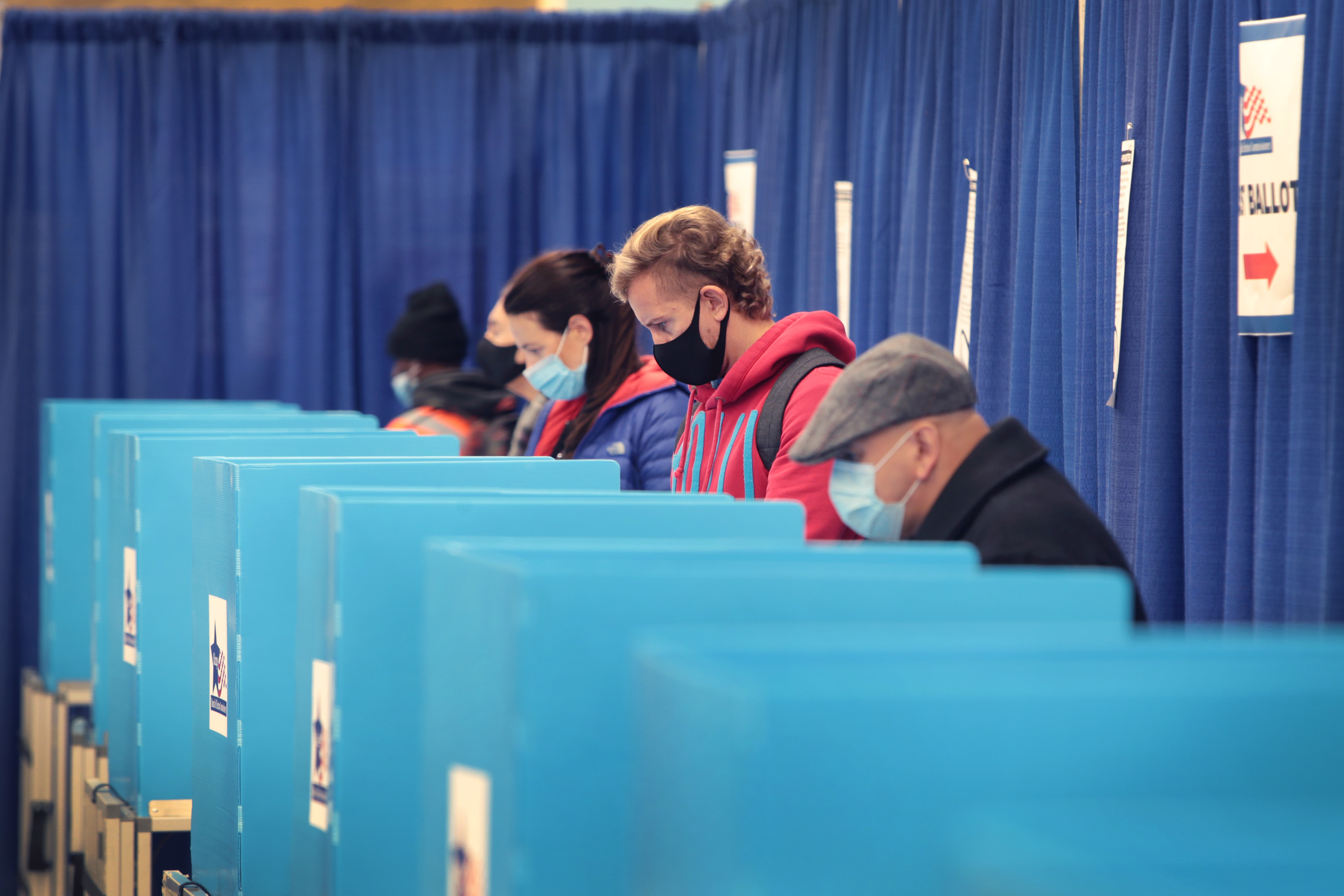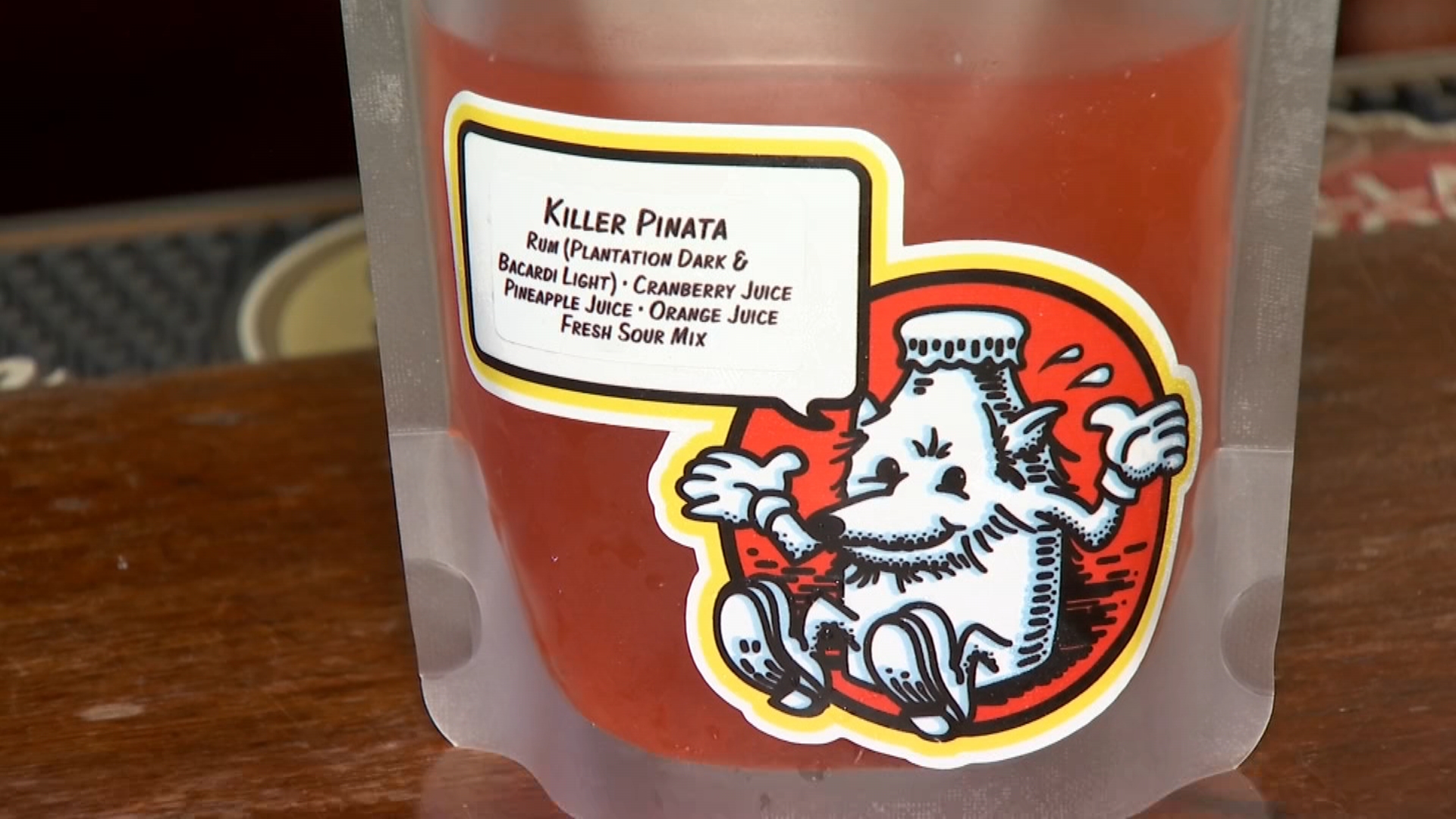Illinois lawmakers went into overtime early Tuesday, missing the midnight deadline for the spring legislative session as they worked to pass a $42 billion state budget, major election-related changes and an ethics reform package, among other measures.
What exactly did they pass in the final few days of session over the long holiday weekend? Here's a breakdown of some of the biggest items that could soon become law, should Gov. J.B. Pritzker sign them:
Illinois state budget
Legislators worked past the deadline to piece together a $42 billion state budget, which was based on tax revenue sources that rebounded much faster from the coronavirus pandemic than expected and included $2.5 billion in spending from a multiyear federal relief package.
Feeling out of the loop? We'll catch you up on the Chicago news you need to know. Sign up for the weekly Chicago Catch-Up newsletter here.
The plan assembled on the final scheduled day of the spring session incorporates just a portion of the $8 billion Illinois expects in COVID-19 relief money Congress approved last winter — but that pot includes $1 billion in additional construction projects, a fund known only to Democrats until Monday.
House Majority Leader Greg Harris pronounced a balanced budget which also reinstates the $350 million extra for public schools that was promised annually in a 2017 school-funding overhaul, but which Gov. J.B. Pritzker initially said would need to be skipped for a second year in a row.
“We’re very lucky our revenues came up," said Harris, a Chicago Democrat.
The state's budget plan this year offers a far rosier picture than the “pain” — deep budget cuts — Pritzker predicted were inevitable after voters soundly rejected his proposed constitutional amendment in November to allow a graduated income tax system that hit the wealthier harder and would generate $3 billion extra a year.
Republicans denounced the ballot initiative as a blank check for free-spending Democrats, who control both houses of the General Assembly as well as the governor’s office. As revenues continued to outpace predictions, they persisted in their claims that Pritzker had more than enough money.
Their reward came in the form of a Pritzker concession to cut fewer of the business and job-producing incentives they negotiated in 2019 with the Democrat, tax breaks the governor touted then but now calls unaffordable “loopholes.” Democrats crafting the budget were planning to cut three programs to generate $636 million in additional revenue. In February, Pritzker proposed eliminating eight incentive programs to save $1 billion.
Pandemic-battered sectors of the state would get $1.5 billion from Illinois' allotment of American Rescue Plan Act. Hundreds of millions of dollars would be reserved for the Department of Human Services for programs to help the homeless, prevent suicide, counsel schoolchildren through the last year's trauma, and provide services “for our first responders who have gone through a year of hell and deserve all the support we can give them," Harris said. The ailing tourism and hospitality industries would receive $578 million.
Illinois borrowed $5 billion from the federal government to pay unemployment benefits for those the pandemic displaced. ARPA would provide $100 million to pay interest on that loan, but principal retirement would wait.
But another huge debt is off the books. The state owed $1.2 billion — payable by December 2023 — on a $3.2 billion federal loan last summer at the pandemic's nadir. Pritzker and legislative leaders announced 10 days ago that they'd pay that loan off early, saving $100 million in interest.
The ARPA cache is also providing $1 billion for additional construction projects heading into the 2022 election season, money that would be spent in addition to the ongoing, $51 billion “Rebuild Illinois” infrastructure plan approved in 2019. Rep. Tom Demmer of Dixon, the House Republicans’ budget negotiator, questioned Harris as to how projects are chosen. Harris said it’s the “normal process” in which lawmakers and state agencies make requests for work to be done.
“So we have $1 billion dollars of new capital projects that have been available but it appears that they were ... only eligible for requests from Senate Democratic and House Democratic caucuses?” Demmer asked.
Harris responded, “Certainly, we would be happy to talk."
Pritzker said during a news conference Tuesday that he would sign the budget.
Senate Bill 825: Moves Illinois' primary election from March to June, among other election changes
Illinois lawmakers on Monday passed a measure to move Illinois' primary election from March to June next year, among other election-related changes.
Senate Bill 825, which includes several election-related proposals, would shift the March 15 primary to June 28 as lawmakers await census data, delayed by the coronavirus pandemic, to redraw district maps.
The bill also includes plans to make curbside voting a permanent fixture, create polling places in certain jails and make the Nov. 8, 2022, general election a holiday, as it was in 2020.
It also "establishes new cyber security requirements for election authorities" and "requires every county to have one universal voting center for the 2022 primary and general election," according to Rep. Maurice West, a sponsor of the bill.
Under the new proposed election schedule, candidates could begin circulating petitions on Jan. 13, to be filed with the Illinois State Board of Elections between March 7 and 14. Residents would be able to seek vote-by-mail ballots beginning March 30 and no later than June 23, and in-person early voting would begin May 19 - among other changes.
The measure comes as lawmakers await the release of "block-level" population and demographic data from the 2020 Census, which is not scheduled to be released until mid-August at the earliest.
The data is usually given to states in March each year following the Census, in time for states to use it in the redistricting process. But this cycle's delay puts the data release well after the June 30 deadline for new maps that's mandated in the Illinois Constitution.
Senate Bill 539: Ethics reform
Lawmakers also passed a bipartisan pandemic-interrupted ethics overhaul.
The measure prohibits sitting legislators from lobbying other units of government, a practice exposed in a fall 2019 bribery indictment and create a six-month cooling-off period that would halt the long-derided practice of a lawmaker resigning one day and lobbying ex-colleagues the next. But the creation of a statewide registration system for lobbyists at all government levels exempts Chicago, which has its own program. That raised the question among reporters attending a briefing on the measure about the conflicting systems opening loopholes.
“You’d be hard pressed to find a wall that somebody doesn’t find a way to work around, but this is a good solid step,” said Sen. Ann Gillespie, an Arlington Heights Democrat and chairwoman of the Ethics Committee. “This is extending a ban on lobbying, far greater than it has been.”
Senate Bill 104: Extension of 'cocktails to go' and allows bars, restaurants to offer drinks as a vaccine incentive
Illinois lawmakers on Sunday passed a bill to continue allowing bars and restaurants to serve cocktails to go, a measure that served as a lifeline to struggling businesses during the COVID-19 pandemic.
The General Assembly first passed the initiative during the 2020 legislative session, and Pritzker signed it in June, to help bars and restaurants bring in more revenue as they struggled with closures during the pandemic. The measure passed last year included a provision requiring it to automatically expire after one year.
The Illinois House passed Senate Bill 104 on Thursday to update the measure and extend its sunset date to Jan. 1, 2024. The Senate passed the final version of the bill Sunday, sending it to Pritzker's desk. Pritzker indicated Tuesday that he plans to sign it.
Under the law, cocktails must be sealed, labeled and out of reach in vehicles. A valid liquor license is required to sell the beverages and patrons have to be 21 years old to purchase.
The bill also enables bars and restaurants to give out a free alcoholic drink to customers who have gotten vaccinated against COVID-19.
The so-called "shot and a beer" provision allows establishments with liquor licenses to give customers a free drink if they show proof that they've gotten the COVID-19 vaccine, as part of a promotional campaign incentivizing getting vaccinated.
That portion of the measure would only be valid for one month, from June 10 to July 10 of this year.
House Bill 1711: Bill aimed at ending the sale of pets from puppy mills
House Bill 1711 is a measure that changes Illinois' Animal Welfare Act to allow pet shops to only sell cats and dogs if the animals are obtained from an animal control facility or animal shelter.
The bill is aimed at discouraging the sale of pets from puppy mills, which proponents of the measure say can sometimes result in sick animals, and encouraging pet stores to promote the adoption of shelter animals while focusing sales on pet food, toys, and other supplies.
If signed, the bill would also prohibit any business that violates the requirement from selling cats or dogs, regardless of how they are sourced.
House Bill 3922: Would make Juneteenth a state holiday
Legislation making June 19 a paid day off for all state employees and a school holiday was unanimously approved by the Illinois House last week and by the state Senate last month. It states that if June 19 falls on a Saturday or Sunday the holiday will be observed the following Monday. The meaure would take effect immediately if Gov. J.B. Pritzker signs it.
Juneteenth commemorates the date in 1865 when the last enslaved Black people in the U.S. learned from Union soldiers in Texas that they were free, more than two years after the Emancipation Proclamation was signed. The day is also known as Emancipation Day and Freedom Day.
The bill’s sponsor, Rep. La Shawn Ford, has sponsored similar legislation in the past. There “wasn’t an appetite” for passing it previously, the Chicago Democrat told the Chicago Tribune. He says that changed after the murder of George Floyd, who was Black, by a white police officer in Minnesota.




